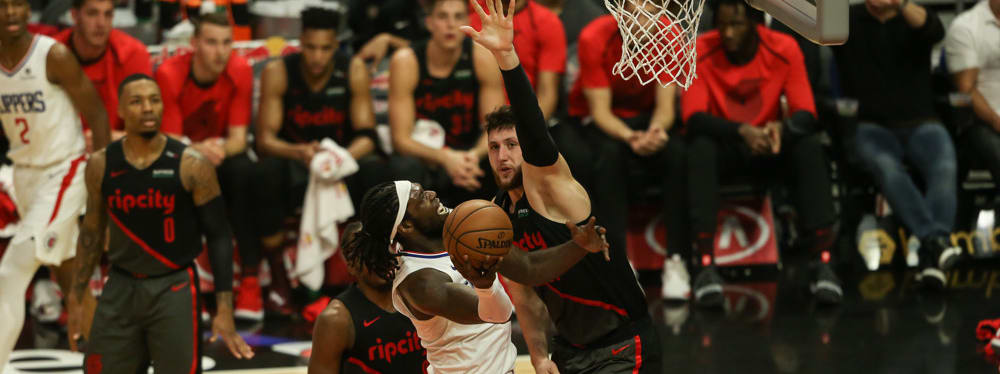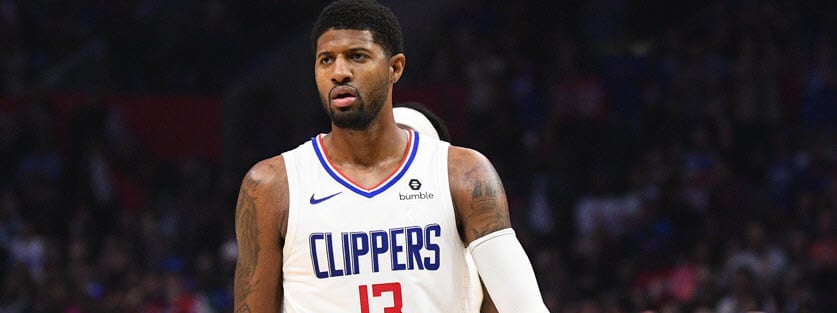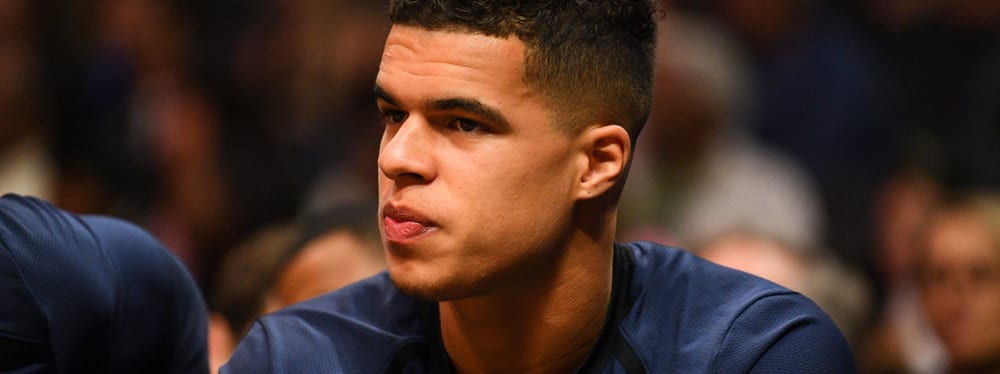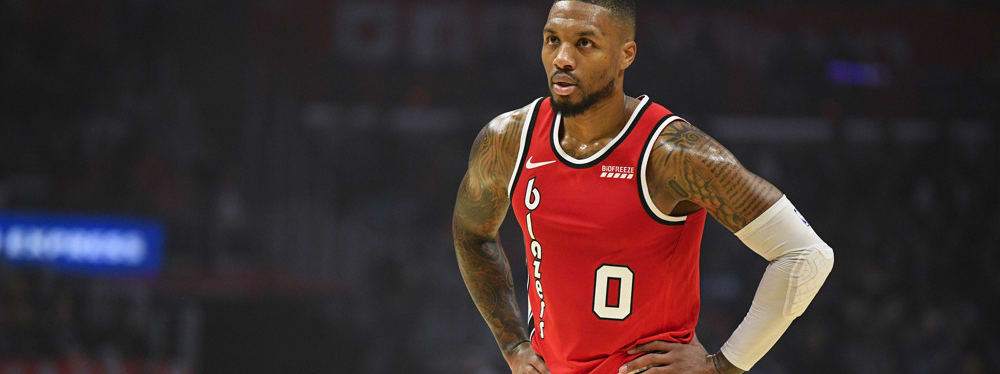Recent RotoWire Articles Featuring Kyle O'Quinn
See More
O'Quinn joins the 76ers on a one-year deal after spending last season with the Pacers. In 45 appearances for Indiana, the big man averaged 3.5 points, 2.6 rebounds and 1.2 assists across 8.6 minutes per contest. O'Quinn has been a low-usage backup for the majority of his seven-year career, with a career-high of 17.2 minutes per night back in 2013-14. His most productive season came in 2017 with the Knicks, when he averaged 7.1 points and 6.1 rebounds, so his ceiling is very low. O'Quinn will fight for reserve minutes at center with Jonah Bolden, though playing on a team loaded with talent (especially in the frontcourt), he'll have a tough time earning 15 minutes per night, making him avoidable in all but the deepest of fantasy basketball formats.
In his third year with the Knicks, O'Quinn continued to show some improvements with his overall game. He ended up posting career highs across the board with per game averages of 7.1 points, 6.1 rebounds, 2.1 assists and 1.3 blocks across 18.0 minutes. He finished the season with eight double-doubles and was an especially important bench piece over the final few months after All-Star big man Kristaps Porzingis went down with a torn ACL. His fluctuating role kept him out of the season-long Fantasy league discussion for much of the year, but he was still a valuable DFS option when receiving an extended workload, as evidenced by his aforementioned double-double totals. As a result of his strong play, O'Quinn opted out of his $4.2 million player option with New York in an attempt to garner a pay raise. However, he ended up seeing just a very minor bump and now heads to Indiana on a one-year, $4.5 million deal. O'Quinn is expected to slot in as the team's third center behind Myles Turner and Domantas Sabonis, helping refill the frontcourt depth Indiana lost following the departures of Al Jefferson and Trevor Booker. Considering his placement on the depth chart, O'Quinn will struggle to provide consistent value for Fantasy owners, but he'll always be a streaming option if he's set for an increased workload on any given day/week.
O'Quinn was once again a depth option for the Knicks in the frontcourt during the 2016-17 campaign. However, with fellow center Joakim Noah playing in just 46 games, that allowed O'Quinn to see a few added minutes here and there. After averaging 11.8 minutes in his first season with New York, O'Quinn saw his playing time jump up to 15.6, which in turn added to his averages elsewhere of 6.3 points, 5.5 assists, 1.5 assists and 1.3 blocks. That wasn't enough to put him on the radar in anything but the deepest of leagues as a rebound and block specialist. That's unlikely to change heading into the 2017-18 season. Noah is set to miss the first 12 games of the year on suspension, but once he's back, O'Quinn will likely fall to the team's third-string center. O'Quinn can also play power forward, but guys like Kristaps Prozingis, Lance Thomas and Michael Beasley are all options there, which doesn't translate to a quicker path to playing time. That means O'Quinn likely shouldn't see many more minutes than the 15.6 he posted last season, limiting his impact as a Fantasy option.
The sleeper acquisition of an admittedly unexciting Knicks summer haul, O'Quinn returns to his native New York having agreed to a four-year, $16 million deal. In 51 appearances for Orlando last year, O'Quinn averaged 5.8 points, 3.9 rebounds, 1.2 assists, and 0.8 blocks in 16 minutes per game. At 6-10, 250 pounds, O'Quinn is capable of playing power forward and center, where he figures to backup starter Robin Lopez for the Knicks. When given ample minutes, O'Quinn has flashed a decent all-around skill set that includes strong rim protection and rebounding efficiency. However, O'Quinn has also demonstrated intriguing court vision and a developing outside shooting touch. Combined, those traits seemingly make the 25-year-old an ideal fit for the Knicks' offensive scheme, which could make him a valuable frontcourt contributor at either starting power forward or backup center. While O'Quinn's previous production should rightfully draw skepticism over his fantasy stock, it appears his new situation could set him up for success and gradually make him relevant in more formats.
Kyle O'Quinn is entering his third season in the NBA. Last season, O'Quinn averaged 6.2 points, 5.3 rebounds, 1.1 assists, 0.6 steals, and 1.3 blocks in 17 minutes per game through 69 games. The 24-year-old center shot 50 percent from the field on 5.4 attempts per game and 69 percent from the free-throw line on 2.5 attempts per game. What began as a lost season quickly turned into a contract-saving campaign, with O'Quinn becoming a staple in the starting lineup after the trade deadline, facilitated by the departure of Glen Davis and injury-absence of Nikola Vucevic. O'Quinn turned in career-highs across the board and led the Magic in blocks and defensive rating (101.8). His 88 total blocks left him tied for 24th in the league last season, and he held opponents to 46-percent shooting at the rim (8th best among 71 players with at least four opportunities per game and 60 games played). Offensively, O'Quinn owns an quality mid-range game (42 percent from the field on 177 attempts last season) and is an adept at passer for a center. Standing in his way are minute consumers Nikola Vucevic and Channing Frye.
O'Quinn should lead the also-ran forwards in playing time, as he performed better than expected last year, and was rewarded with a steadily increasing supply of minutes. He has limited skills as a shot-blocker or scorer, but is a surprisingly skilled as a passer – he averaged 3.8 assists per 48 minutes in March, and 4.6 per 48 minutes in April.
O’Quinn will get opportunities as the Magic look to expedite the youth movement. The second-round pick averaged 8.8 points and 6.2 rebounds in Summer League, and will get chances at the backup 5 role. He is undersized, but makes up for it with his hustle.












